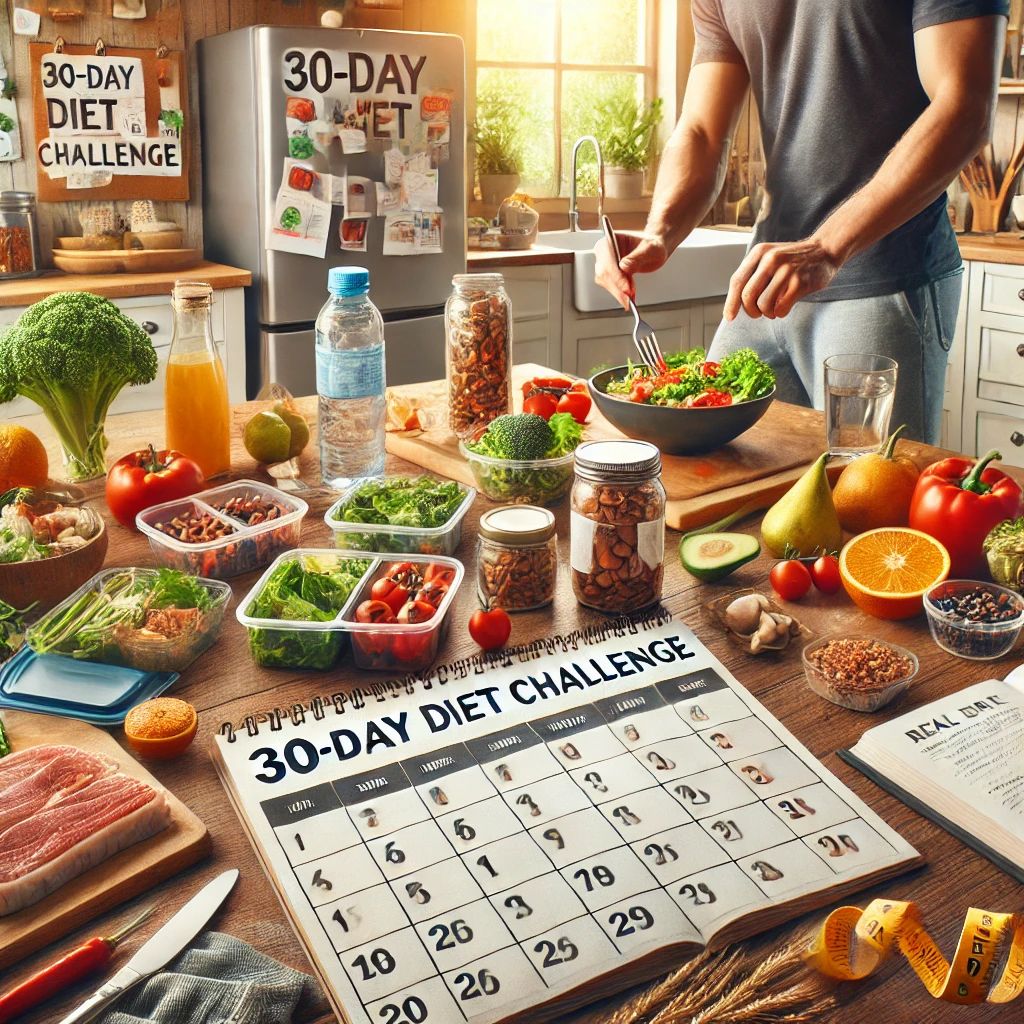
Why Try a 30-Day Diet Challenge?
A 30-day diet challenge is a great way to kickstart healthier eating habits and achieve noticeable results in a short period. Unlike crash diets, this challenge focuses on balanced nutrition, portion control, and sustainable changes that can set the foundation for long-term weight loss and overall well-being.
1. Set Clear Goals for Your Challenge
Define Your Objectives
Decide what you want to achieve: weight loss, improved energy, better digestion, or all of the above.Set measurable and realistic goals, such as losing 4–8 pounds or consistently eating balanced meals.Track Your Progress
Use a journal or app to log meals, track weight, and note how you feel physically and emotionally throughout the challenge.2. Focus on Balanced Nutrition
Adopt a Clean Eating Approach
Prioritize whole foods like lean proteins, fruits, vegetables, whole grains, and healthy fats.Avoid processed foods, added sugars, and refined carbs to support better digestion and energy levels.Incorporate Protein in Every Meal
Protein helps maintain muscle mass and keeps you feeling full.Include sources like chicken, fish, tofu, eggs, or beans in your daily diet.Monitor Portion Sizes
Use tools like measuring cups or your hand to estimate portions accurately.Avoid overeating, even when consuming healthy foods.3. Plan and Prep Meals Ahead
Create a Weekly Meal Plan
Plan meals and snacks for the week to avoid impulsive, unhealthy choices.Include a variety of flavors and textures to keep your meals exciting.Batch Cook
Prepare larger portions of healthy meals, such as soups, salads, or grain bowls, and store them in the fridge or freezer for convenience.Pack Snacks
Keep healthy snacks on hand, like nuts, yogurt, or cut-up veggies, to avoid reaching for junk food.4. Stay Hydrated
Drink Water Before Meals
Drinking a glass of water before eating can help control hunger and prevent overeating.Avoid Sugary Drinks
Replace sodas and juices with water, herbal teas, or sparkling water to cut down on empty calories.Set Daily Hydration Goals
Aim for at least 8 glasses of water daily, adjusting for activity levels or climate.5. Incorporate Regular Physical Activity
Pair Your Diet With Exercise
Combine the diet challenge with at least 30 minutes of moderate exercise, such as walking, cycling, or yoga, five times a week.Try Strength Training
Build muscle and boost metabolism with bodyweight exercises or light weightlifting twice a week.Track Activity Levels
Use a fitness tracker or app to monitor your progress and stay motivated.6. Handle Challenges and Stay Motivated
Plan for Social Events
Check menus in advance or bring a healthy dish to share at gatherings.Allow yourself small indulgences without derailing your progress.Stay Accountable
Share your goals with a friend or join an online support group for encouragement.Celebrate Milestones
Reward yourself for sticking to the plan—choose non-food rewards like a new workout outfit or a relaxing massage.7. Reflect and Transition to Long-Term Habits
Evaluate the Results
At the end of 30 days, assess your progress: weight, energy levels, mood, and overall well-being.Maintain Healthy Changes
Continue incorporating balanced meals, portion control, and regular activity into your lifestyle.Set New Goals
Use the momentum from the challenge to set longer-term health and fitness objectives.Conclusion: Transform Your Lifestyle in Just 30 Days
A 30-day diet challenge is more than a short-term fix—it’s a powerful way to reset your eating habits and lay the groundwork for sustainable health and fitness. With proper planning, consistent effort, and a positive mindset, you can make meaningful changes that last well beyond the challenge.
The article was prepared by Ira Levovich.



